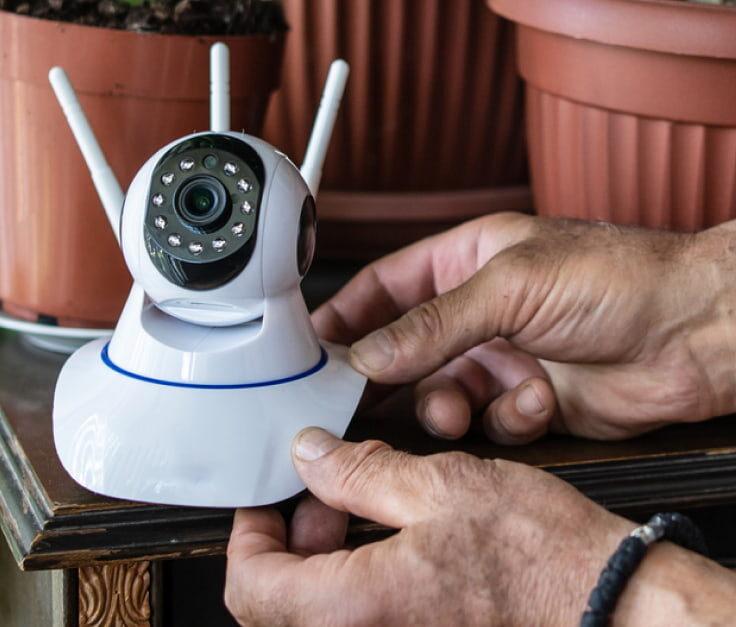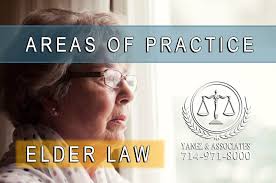Legal Regulations for Nursing Home Cameras in Ohio
Nursing home cameras have become a common way for families to ensure the well-being of their loved ones. In Ohio, the legal framework surrounding the use of these cameras is essential to understand. While they offer a sense of security, there are strict rules governing their use to protect the privacy of residents. This introduction will explore the key aspects of Ohio’s laws on nursing home cameras, ensuring you’re informed before making any decisions.
Overview of Ohio Laws on Nursing Home Cameras
Ohio has specific laws in place when it comes to the installation and use of cameras in nursing homes. These laws are designed to balance the need for safety and oversight with the privacy rights of nursing home residents. Key points to be aware of include:
- Consent: Residents must give their consent before any camera can be installed in their room.
- Notification: The nursing home facility must be informed about the installation of the camera.
- Placement Restrictions: Cameras must be placed in such a way that they do not violate the privacy of other residents or nursing home staff.
- Data Usage: Any recordings from these cameras can only be used for monitoring purposes, and there are restrictions on who can access the footage.
Ohio law emphasizes the importance of consent and transparency in the use of cameras. Understanding these basic legal requirements will help ensure compliance and protect the rights of everyone involved.
Permission and Consent Requirements for Camera Installation
Before installing a camera in a nursing home in Ohio, obtaining proper consent is a critical step. Here’s a breakdown of the requirements:
| Type of Consent | Requirement |
|---|---|
| Resident Consent | The resident must provide written consent. If the resident is incapable of giving consent, a legal guardian or power of attorney can do so on their behalf. |
| Roommate Consent | If the resident shares a room, their roommate must also provide written consent. |
| Nursing Home Notification | The nursing home must be notified before any installation, and they must be given a copy of the consent form. |
Failing to meet these consent requirements can lead to legal penalties, including fines and forced removal of the cameras. Therefore, ensuring all involved parties agree to the installation is essential for staying within Ohio’s legal guidelines.
Privacy Concerns and Resident Rights
When it comes to nursing home cameras in Ohio, privacy is a major concern. Residents have the right to a private and dignified living environment, and the use of cameras must respect these rights. Ohio law ensures that cameras are not used to violate a resident’s personal space, which is why strict regulations are in place. Let’s look at some of the key privacy concerns:
- Personal Privacy: Cameras should never be installed in private areas like bathrooms, as these spaces are considered highly sensitive.
- Roommate Privacy: If a resident shares a room, their roommate must also agree to the installation. This protects both individuals’ privacy and avoids conflict.
- Resident Dignity: The presence of cameras should not diminish the dignity of the resident. Care must be taken to ensure the resident feels comfortable with the camera in their living space.
While cameras can help monitor care quality, it’s important to strike a balance between safety and privacy. Ensuring that residents are fully informed about their rights and giving them the option to refuse or agree to camera usage empowers them to maintain control over their living environment.
How to Legally Install Cameras in Ohio Nursing Homes
Legally installing a camera in an Ohio nursing home requires careful steps to ensure compliance with state regulations. By following the legal process, families and nursing home facilities can avoid potential issues. Here’s a step-by-step guide:
- Obtain Written Consent: The first step is securing written consent from the resident or their legal guardian. If the resident has a roommate, their consent is also mandatory.
- Inform the Nursing Home: Notify the nursing home about the intention to install a camera. They must be provided with the consent documents for their records.
- Install Cameras in Designated Areas: Cameras should be installed in personal living areas, but avoid sensitive places like bathrooms to comply with privacy laws.
- Ensure Camera Visibility: Cameras must be clearly visible to anyone entering the room. Hidden or secret cameras are not permitted under Ohio law.
- Secure the Footage: Proper measures must be in place to store and access the recorded footage, ensuring only authorized individuals can view it.
By following these steps, you can make sure that cameras are installed legally and that the rights of both residents and staff are respected.
Legal Penalties for Unauthorized Camera Use
Ohio takes the unauthorized use of cameras in nursing homes seriously. Failing to comply with the laws regarding camera installation and usage can lead to significant penalties. Some of the potential consequences include:
- Fines: Violating Ohio’s nursing home camera laws can result in substantial fines. The amount depends on the severity of the violation and whether there are repeated offenses.
- Forced Removal of Cameras: Nursing homes or residents who install cameras without following proper procedures may be required to remove them immediately.
- Legal Action: Residents or their families may pursue legal action if their privacy rights are violated due to unauthorized camera use. This could lead to lawsuits and further financial consequences.
- Criminal Charges: In extreme cases, particularly where hidden cameras are used or where footage is misused, criminal charges may be filed against those responsible.
Understanding and adhering to the laws can help avoid these penalties, ensuring that cameras are used legally and responsibly. Nursing homes and families must prioritize the legal aspects to maintain trust and avoid any complications.
Exceptions to the Rule: Special Cases in Ohio
While Ohio nursing home camera laws are strict, there are some exceptions and special cases where the rules may differ slightly. These exceptions are designed to address unique circumstances, providing flexibility while still protecting residents’ rights. Here are a few examples:
- Medical Emergencies: In some cases, cameras may be installed temporarily during a medical emergency or recovery period, especially if the resident cannot communicate or move independently.
- Short-Term Care: For residents receiving short-term care, families may request permission to install cameras for a limited time, usually with streamlined consent procedures.
- Court Orders: In rare cases, a court may issue an order allowing the installation of cameras in a nursing home room, even if standard consent procedures are bypassed. This usually happens in cases involving suspected neglect or abuse.
- Residents with Cognitive Impairments: For individuals with dementia or other cognitive impairments, a legal guardian may have broader discretion in approving camera installation to ensure safety and proper care.
These exceptions ensure that special circumstances are considered while still upholding privacy and dignity for all residents. It’s important to work closely with legal professionals and nursing home staff to understand when and how exceptions may apply.
Benefits and Challenges of Using Cameras in Nursing Homes
Installing cameras in nursing homes offers a range of benefits, but it also comes with its own set of challenges. Understanding both sides can help families and facilities make informed decisions.
Benefits:
- Improved Care Monitoring: Cameras provide an extra layer of oversight, ensuring that residents are receiving the care they need, especially when family members cannot be present.
- Peace of Mind: Families often feel reassured knowing they can monitor their loved one’s well-being remotely, especially in cases of suspected neglect or abuse.
- Evidence Collection: In the unfortunate event of a dispute or legal issue, camera footage can serve as valuable evidence to clarify what happened.
Challenges:
- Privacy Concerns: Cameras may intrude on residents’ sense of privacy, particularly in shared spaces or when they are unaware of being monitored.
- Technical Issues: Installing and maintaining cameras requires proper equipment, and malfunctions can result in gaps in coverage or false security.
- Ethical Considerations: There’s always the question of how much surveillance is appropriate, especially in a setting designed to promote comfort and dignity.
Weighing these pros and cons is essential when deciding whether cameras are the right solution for a specific nursing home environment.
Frequently Asked Questions about Ohio Nursing Home Camera Laws
When it comes to using cameras in Ohio nursing homes, people often have many questions. Here are answers to some of the most common concerns:
Do I need permission to install a camera in my loved one’s nursing home room?
Yes, you must obtain written consent from both the resident and any roommates before installing a camera.
Can cameras be hidden in a nursing home?
No, Ohio law prohibits the use of hidden or secret cameras. Cameras must be clearly visible and installed in a way that all parties are aware of their presence.
What happens if the nursing home refuses to allow a camera?
If a nursing home refuses camera installation despite meeting all legal requirements, you may need to seek legal advice or file a complaint with the Ohio Department of Health.
Can camera footage be used in legal cases?
Yes, footage from nursing home cameras can be used as evidence in legal disputes, provided it was recorded in compliance with Ohio law.
These FAQs cover the most common concerns, helping families and nursing homes navigate the complexities of camera installation in Ohio nursing facilities.
Conclusion on Legal Regulations for Nursing Home Cameras in Ohio
In summary, Ohio’s legal regulations surrounding nursing home cameras aim to strike a balance between resident safety and privacy. By requiring consent, ensuring transparency, and placing clear limitations on camera usage, the law protects both the rights of residents and the interests of their families. While cameras offer peace of mind and improved monitoring, it’s essential to follow Ohio’s laws closely to avoid penalties and protect the dignity of all individuals involved. Understanding the rules and exceptions is key to making the best decision for the care of loved ones.


